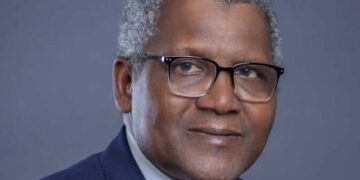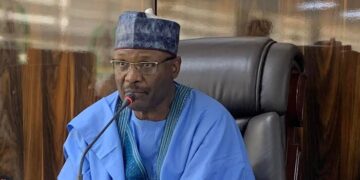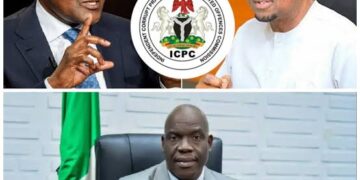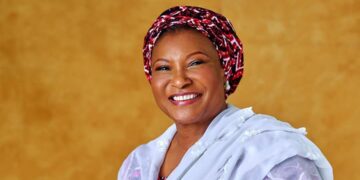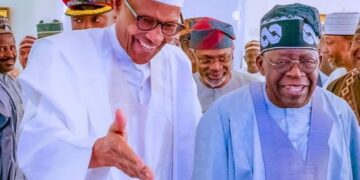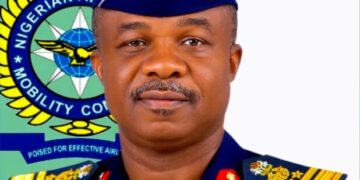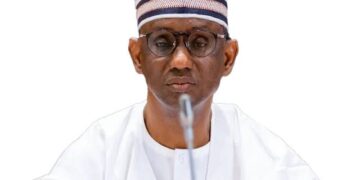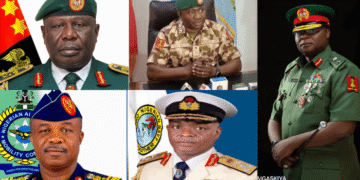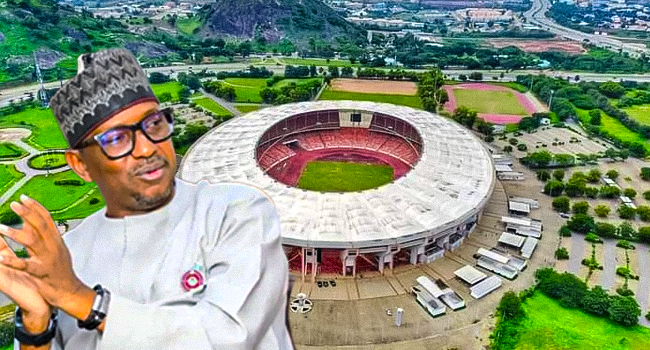The chairman of the National Sports Commission (NSC), Shehu Dikko, has targeted the end of the year to begin fixing the Moshood Abiola National Stadium, Abuja, as part of broader efforts to revive Nigeria’s dilapidated sports infrastructure.
Dikko made this known on Monday during an appearance on Channels Television’s The Morning Brief, amid growing concerns about the state of sports infrastructure in the country following a viral clip revealing the poor state of the National Stadium in Surulere, Lagos.
But responding to these concerns, Dikko stated that the current administration is taking unprecedented steps to address infrastructural decay in Nigeria’s sports sector.
“A few months ago, I was in London to bring in top stadium infrastructure companies. They were in Abuja last month. Hopefully, we’ll start fixing Abuja by the end of the year, and the stadium should be running at a foundational level,” Dikko said.
‘Best Budget for Sports’
The National Stadium in Abuja was opened in 2003, hosting the All-African Games in the same year. But in recent years, the facility has been in disrepair, forcing the Super Eagles to adopt the Godswill Akpabio Stadium in Uyo as the team’s home ground.
However, Dikko said that the Federal Government has received funding for the renovation of the facility and other sports infrastructure across the country.
“If you look at the budget of the National Sports Commission, it’s up by over 300 per cent. This is the best budget for sports in 60 years,” he said.
“There is funding to fix other stadiums across the country and to start developing mini sports centres in communities nationwide.
“The president (Bola Tinubu) has shown the first step. If you look at the funding given to sports, it’s not for competitions — they are clearly targeted at key infrastructures,” Dikko stated.
The video of the Lagos Stadium, circulated widely on social media, showed decaying tartan tracks, crumbling stands, overgrown vegetation, and defunct lighting systems—signs of prolonged neglect at a stadium that once hosted iconic events like the 1980 and 2000 Africa Cup of Nations finals and the 1973 All-Africa Games.
Despite its historical importance, years of abandonment have left the Lagos stadium out of major use, sparking public outrage and renewed calls for urgent intervention.
However, Dikko said that the Commission is also working towards concessioning some major facilities, engaging international partners to ensure the stadium upgrades meet global standards.
In addition to refurbishing the stadiums, Dikko revealed plans to build full-fledged sports cities around key venues like Abuja, Lagos, Kaduna, and Ibadan.
“It’s not just about building infrastructure — we are developing entire ecosystems around the stadiums with shopping malls, hotels, convention centres, amusement parks and arenas, so that these facilities can generate revenue 24/7, not just when a match is played,” he explained.
‘Make our Domestic Sports Work’
The NSC chief also spoke about structural issues plaguing Nigerian sports. Dikko criticised the country’s narrow focus on international competitions while neglecting local development.
He referenced the English Premier League as a model for revenue and the economic advantage it could offer.
“The major problem with sports in this country is that we’re more focused on competitions. Everybody’s thinking about the Olympics or the World Cup — but nobody is asking what we’re doing in the domestic scene,” the NSC chief said.
“All over the world, it’s the domestic industry that serves as the anchor. We must create an ecosystem that will make our domestic sports work.”
“England hasn’t won a major tournament since 1966, yet they’ve built the best football league in the world. Every weekend, three million people step out to watch football — imagine what that does for their economy. That’s what we need to replicate.”
‘Biggest Missing Link’
Dikko also emphasised the urgent need to address the country’s poor sports broadcasting infrastructure.
“Broadcasting infrastructure is the biggest missing link in our economy when it comes to producing sports content. To produce a single football match in Nigeria can cost ₦20 to ₦30 million because of this deficit,” he said.
“We are trying to break that cycle. Every zone in the country must have dedicated infrastructure, and we’re speaking with suppliers who can help restore previously abandoned systems.”
The NSC chair also announced the creation of a national e-sports federation, aimed at harnessing the digital space to tackle youth unemployment.
“We’re creating a federation for e-sports. It can employ millions and provide countless opportunities. With over 70 per cent of Nigeria’s population being young people, this is where we can channel their energy and generate revenue,” he stated.
Gateway Games ‘the Best Festival’
Dikko further praised the ongoing Gateway Games 2025 as a major achievement for Nigerian sports, highlighting its economic impact on small businesses and communities.
“This is the best festival we’ve had so far,” he declared. “Gateway Games created wealth for small businesses — some people will be crying when the games end. We want to host as many events as possible.”
He revealed that plans are underway for under-18 and under-20 championships in July and described Ogun State as the “hub” of this new economic activity in sports.
“Before the next festival, we will have our own dedicated sports channels on TV networks,” Dikko added, noting that the commercial perspective of the current games would be released at their conclusion.


